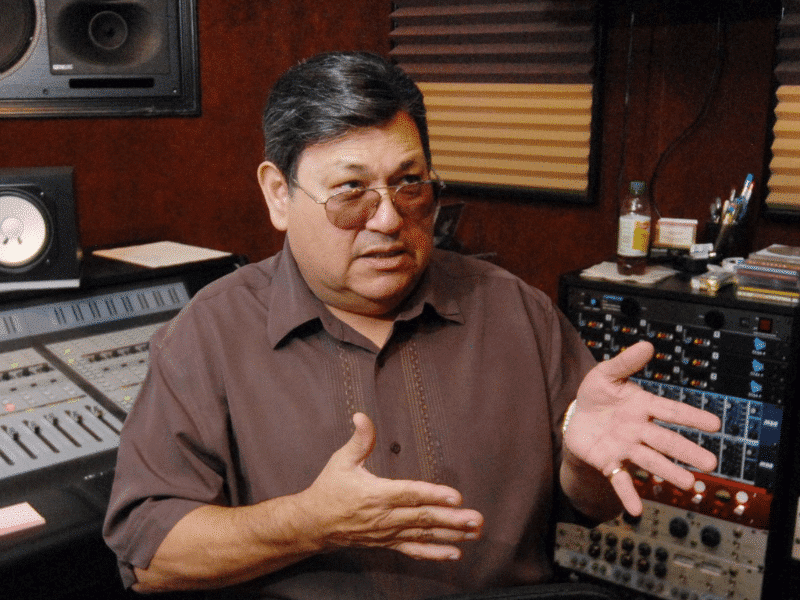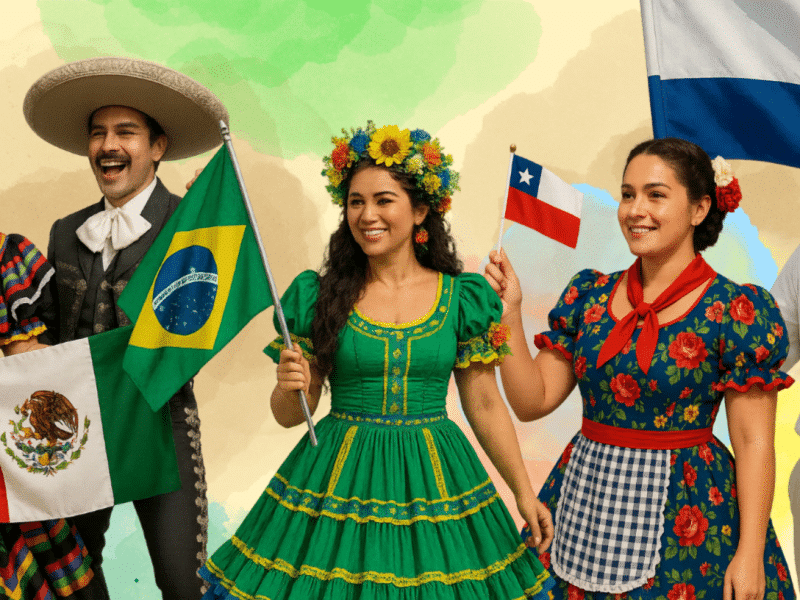“No Sabo”: The Language-Shaming Label is Getting Pushback
Understanding the complexities of Latino identity in the U.S. goes beyond language. In this piece, we dive into the experience of being a “no sabo” kid—navigating the space between two cultures, and the pressure to be “Latino enough.”

Around the world, being able to speak multiple languages is usually considered a plus – a skill that connects different cultures and perspectives. But for many Latinos in the U.S., this ‘advantage’ has sometimes been a double-edged sword.
Throughout the latter part of the 20th century, the phenomenon of being “byelingual” arose. This term refers to people who know two languages (in this case, English and Spanish), but often struggle with elements from both. It’s not just about forgetting a word here or there; it’s about juggling two cultural identities and sometimes feeling like you don’t fully belong to either.
Back in the day, especially during the ’80s and ’90s, many Latino parents had a tough choice to make: Either teach their kids Spanish to help keep them rooted to their heritage or focus on English so they could fit better in the U.S., and even be a smaller target for racism and racist English-only policies. For many socio-political reasons, including immigration reforms and a charged racial climate post the Civil Rights era, many immigrant parents chose not to teach their children their native tongue.
This choice, although made with the children’s best interests at heart, often stemmed from a fear of ostracization and a desire to shield their kids from the pervasive racism of the time.
Fast forward to now, and there’s a twist. Many first and second-generation Latinos find themselves estranged from a significant part of their heritage. As a result, many face criticism, even from people in their own community, for not mastering Spanish. They’re caught in a sort of linguistic limbo. And there’s even a cheeky, and often malicious term for it: “no sabo.”
On the surface, it might seem like the term is harmless slang or a joke, but words have weight. Calling someone a “no sabo kid” is often used to make them feel ashamed for not having perfect Spanish or not knowing Spanish at all. That’s a skill they might have had no control over learning in the first place, so it’s cruel to point it out that way. It’s also divisive, creating an “us vs. them” in our own community, and making some feel left out or ‘less than.’ At its core, it’s a form of gatekeeping, telling people they aren’t “Latino enough” based on language alone.
There are even initiatives like the “Yo Sabo” card game and the “Spanish Sin Pena” (“Spanish Without Shame”) program, which aim at helping Latinos reconnect with Spanish in a way that’s fun and non-judgmental. This new wave of Latinos argues that cultural identity is multifaceted and can’t be reduced to how well you speak a language. They’re also creating safe spaces for each other and highlighting the importance of supportive environments for language learning.
As the world evolves and cultures continue to intertwine, we need to rethink what it means to belong. Your connection to your heritage is a deeply personal and multifaceted thing that should not be criticized. And gatekeeping language only limits the richness of cultural exchange.
While the path to understanding and redefining what it means to be Latine might still be under construction, one thing is clear: It’s time to leave divisive terms like “no sabo” behind. Everyone has their own way of connecting with their culture, and that’s worth celebrating.




